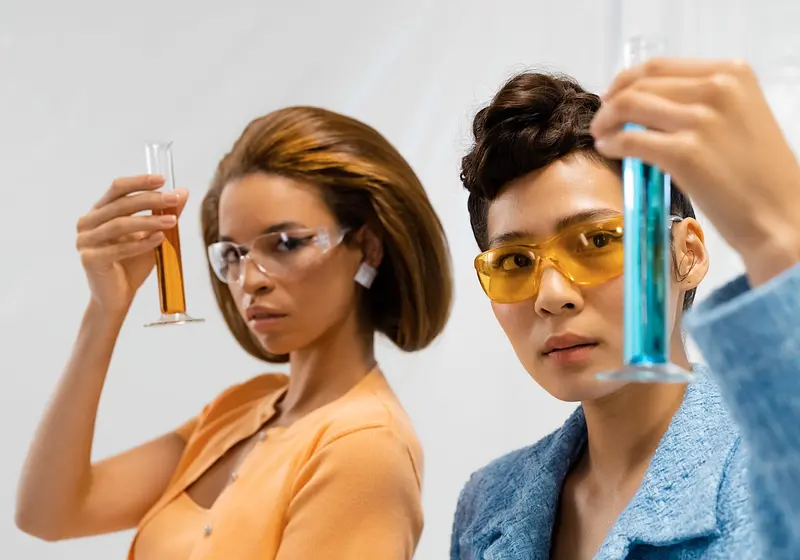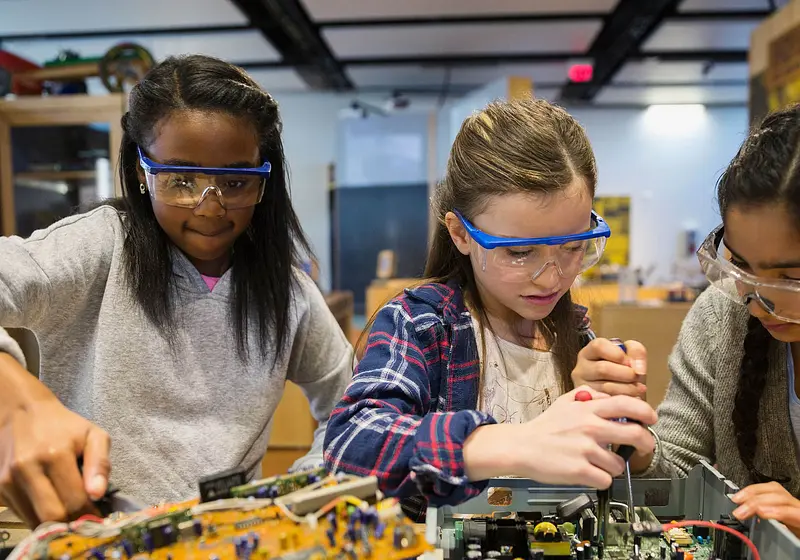As a girl in STEM, I know discrimination is nothing new. Science is a field of study I love, but if I had lived even fifty years ago, my own opportunities might not be the same. My grandmother always spoke about how she wanted a doctor, but circumstances did not permit her to achieve this dream.
She ended up having another career, but not as a doctor. As her granddaughter, I’ve been given incredible opportunities to go to school and think about a career in STEM, which might not have been possible.
This is why I want to speak about the past so we can think clearly about future opportunities for women and minorities. We say Science is concrete and fixed, but when we limit certain perspectives from a field of study, we impact that field and its future studies. We need to recognize that a broad range of people have valuable insights to bring to STEM fields.
Hiding from our unjust behaviors will only make our situation worse. We cannot ignore the different groups of people that we have systematically kept from entering certain professions. People often think that they know how to act rightly and justly, but it’s what we do not know that is more important when it comes to making change.
It matters that we tell true stories about how certain knowledge was discovered, and that means we need to hear more stories that are not only about men. Do you know who discovered DNA: the most fundamental building block of life?
Let us slide into your dms 🥰
Get notified of top trending articles like this one every week! (we won't spam you)Stolen Science?
Most people would answer Watson and Crick. Two men. But there are very few of us who would dare mention the name of Rosalind Franklin.
Many of us don’t even know who Rosalind Franklin is, yet everyone knows who Benjamin Franklin is. Franklin fits perfectly with the stereotype of a scientist or esteemed figure: an old man with long white hair, glasses, and most likely from the 1700s. We must stop thinking of Benjamin Franklin's stereotype as the only image of an inventor or scientist. "Franklin" should immediately correlate with the fearless, and intelligent woman as well.
Take the Quiz: Which Indian city is the perfect holiday spot for you!?
Let's match you with an Indian city that you would love!
Who is Rosalind Franklin?
She is an empowered woman who risked her entire life for the progress of science, and she actually died because of radiation exposure from her discoveries without an acknowledgement of her endeavor. If this were a white male, the scenario would be different. Watson and Crick pop up into our minds without a second thought when someone mentions DNA.
But they stole Franklin’s research and took the Nobel Prize from her findings. The most fundamental knowledge about human nature is built upon a falsehood: a woman pioneered the way for DNA research. If we neglect to think rightly about who can contribute to science, and people unjustly steal their discoveries, then how can we trust the information we find? Who is legitimately able to contribute to scientific discoveries impacts the success of the field.
Ideas That Sparked Innovation
For example, Albert Einstein’s ideas might have died with him in the concentration camps. As a Jewish man, he was a persecuted minority during WWII. Albert Einstein was not always an American.
In fact, for the majority of his life up until 1933, Albert Einstein was a German and a proud one at the least. He was not always the man that everyone recognizes him as today, as his status of intellect is only part of his entire persona. As a Jewish man under Nazi rule, he had to flee Germany to save his life.
When we discriminate against people based on gender, race, or ethnicity, we can lose valuable insights into any field. Discrimination is a disservice to the world, and not a single soul should ever encounter it, but unfortunately, we even discriminate against other cultures in the name of science, too.
In the West, we privilege a certain view of science and a view of nature as something to experiment on or manipulate. But other cultures, whom we might judge for being less “scientific” actually have great knowledge that we can learn from. We need to learn from other cultures how best to connect to the land and ourselves.
When we allow a single definition of who a scientist is and what it means to “do science,” we become intolerant of other forms of knowing how the world works. By only validating a Western Euro-centric approach to sciences and knowledge of the world, the world loses access to an array of insights that can offer a more holistic approach to thinking about our world, how it works, and our place in it.
The Definition of Success
Diversity is the best way to ensure the success of individuals and communities. If every person or culture was identical, then the world would be a monotonous place filled with repetition and no sense of hope. Not everything needs to be a competition or a test.
We need to start focusing on how to promote success for the community. As a woman in science, I want to raise awareness about the need for more diversity in the sciences.











